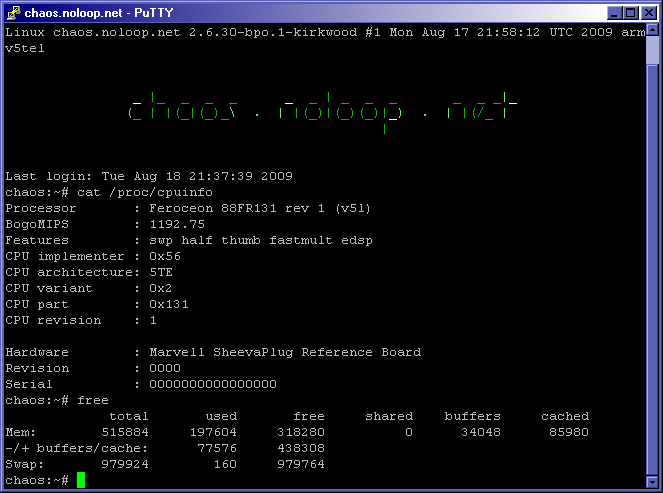Using the Sheevaplug as an offsite server for DNS, mail and rsync backups

The sheevaplug makes an excellent lightweight server, and is definitively capable of handling DNS, mail and scheduled backups for personal use. Put it in the attic of a friend's or relative's house with a huge external USB drive and you're all set!
SSH
For remote administration (and later, rsync) be sure to port-forward the OpenSSH server port (22). You may want to use a non-standard port to avoid the inevitable constant bruteforce attacks.
DNS
Using the sheevaplug as a DNS server is really straightforward. Just apt-get install your favourite dns server software (for example "bind9") and port-forward udp&tcp port 53 to the box. If you already have DNS service elsewhere and feel like being enterprising, consider setting up the sheevaplug with a subdomain NS record and install dns2tcp (debian package) ;) (tip: "ssh -D" and "ssh -w" may come in handy)
With some scripting (or existing software like GnuDIP etc, there are plenty) you can even build your own dyndns service, by letting your dyndns clients ssh into the main DNS server and run scripts to update and reload the zone files.
Web
Lighttpd is a low-footprint, fast web server with full support for PHP.
Setting up a mail service is out of scope for this document, but you can get far with Postfix, Dovecot, SpamProbe, ClamAV, procmail, mutt, and perhaps also Lighttpd + PHP via fastcgi + any one of the many PHP webmailer applications (HastyMail2, Squirrelmail etc).
rss2email can be cron'ed for following RSS feeds through your mail client.
Automated offsite backups with rsync
It's fairly easy to set up a cron script calling rsync with ssh keys for automatic, unattended offsite backups. If you want to get fancy, you can also take a look at rdiff-backup or Unison